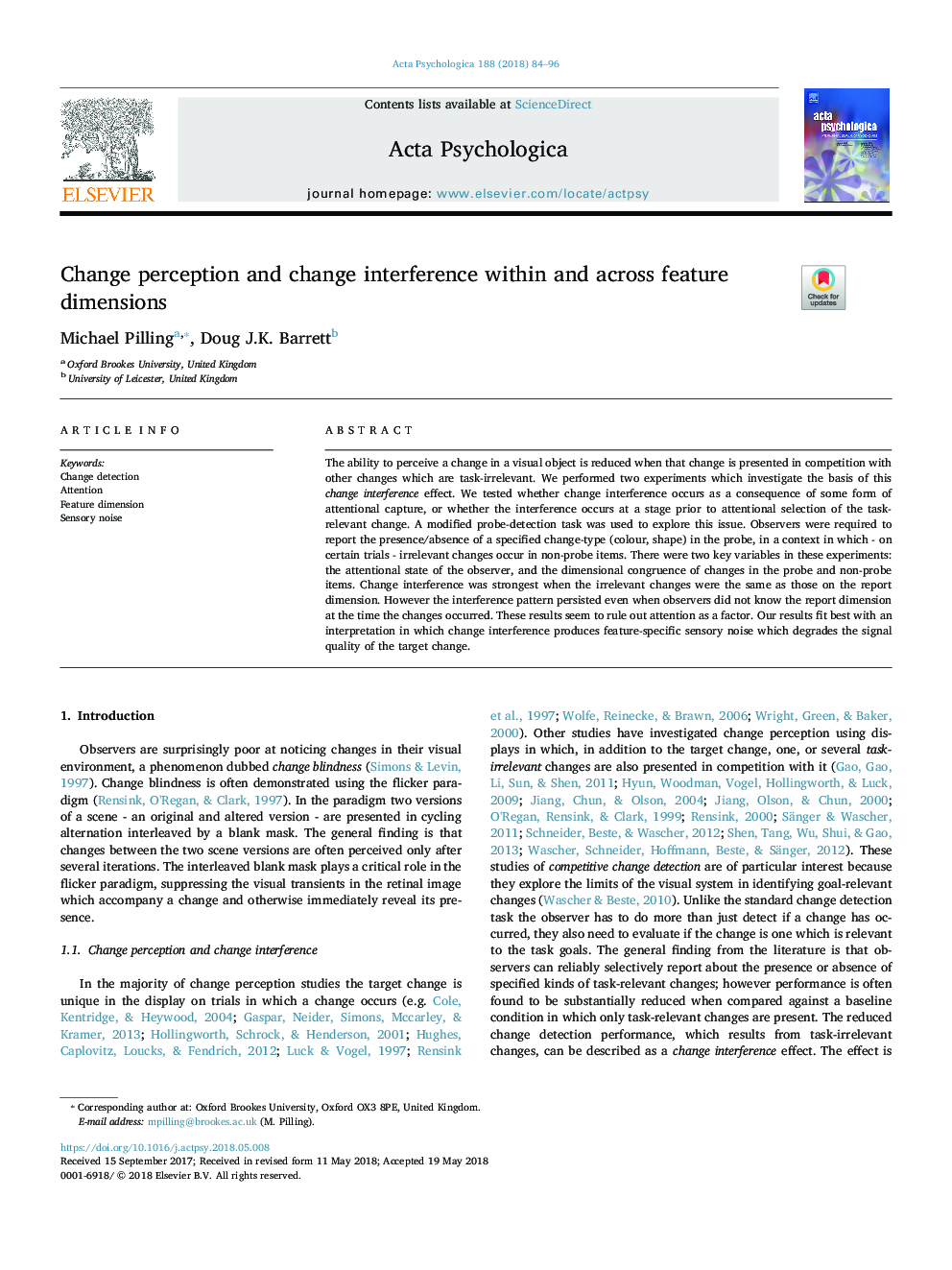| Article ID | Journal | Published Year | Pages | File Type |
|---|---|---|---|---|
| 7276586 | Acta Psychologica | 2018 | 13 Pages |
Abstract
The ability to perceive a change in a visual object is reduced when that change is presented in competition with other changes which are task-irrelevant. We performed two experiments which investigate the basis of this change interference effect. We tested whether change interference occurs as a consequence of some form of attentional capture, or whether the interference occurs at a stage prior to attentional selection of the task-relevant change. A modified probe-detection task was used to explore this issue. Observers were required to report the presence/absence of a specified change-type (colour, shape) in the probe, in a context in which - on certain trials - irrelevant changes occur in non-probe items. There were two key variables in these experiments: the attentional state of the observer, and the dimensional congruence of changes in the probe and non-probe items. Change interference was strongest when the irrelevant changes were the same as those on the report dimension. However the interference pattern persisted even when observers did not know the report dimension at the time the changes occurred. These results seem to rule out attention as a factor. Our results fit best with an interpretation in which change interference produces feature-specific sensory noise which degrades the signal quality of the target change.
Keywords
Related Topics
Life Sciences
Neuroscience
Cognitive Neuroscience
Authors
Michael Pilling, Doug J.K. Barrett,
